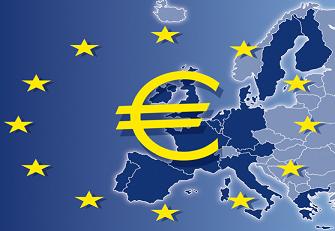Euro is the currency used by the European Union (EU) countries, so, the market the Euro is used for, can be named Euromarket. It has in view all the transactions done by the banks in Euro currencies, Euro notes, Euro commercial papers, Euro bonds. It is a market that has developed itself in Europe. The market deals with US dollars as well and it can be named Euro dollar market.
Currency is borrowed and lent by institutions located in different countries, there is a capital flow which seems to be uncontrolled. Theoretically, it cannot be a national control over this market. From the practical point of view, the market forces dictate the lending rates; the rates do not diverge from the domestic lending ones, it happens only for short interval of time. The international banks are the main operators; financial institutions are also allowed to enter the market.
The Euro dollar market is complemented by Eurobond and makes longer term funds available. The bonds are payable to bearer without deduction of tax. They are issued by bank consortia and are placed with investors (national industries, governments, multinational corporations, municipal authorities). London and Luxemburg have developed a secondary market in bonds which has become a supranational market; it is not subject to normal domestic regulations but it is affected by the international events. Important sums of dollars have been deposited in banks which are outside the USA and many USA banks have branches overseas.
Euro-notes are notes issued in bearer form and negotiable. A note issuance facility is a credit facility, the company obtains a loan underwritten by banks which issue series of short term Eurocurrency notes used for replacing the already expired ones. Euro notes are short term notes issued in US dollars.
Commercial papers relate to short term promissory notes issued by companies; they are purchased by investors. They are issued at a discount to the face value they have. The corporations can borrow more cheaply than via bank loans; the investors may earn a higher return on their funds than it is available on bank deposits. A bank usually undertakes the issuing of these papers either directly or through dealers.
